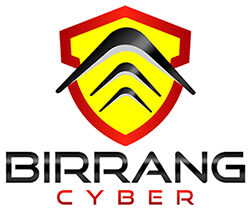Is Cyber Security Affordable for Small Businesses?
Introduction:
A recent release of data by the Australian Bureau of Statistics ABS has confirmed that Businesses continue to be an attractive target for scammers, hackers and digital malcontents seeking money and/or identity theft. In fact the figures show that 22%. of businesses experienced a cybersecurity attack during financial year 2021/22. https://apple.news/AjPKG5w2CTk2WjRaK3yIaUA
Whilst this validates that Cyber security is essential for small businesses, the good news is that it doesn’t have to be an expensive undertaking. By taking simple and inexpensive steps to protect their data and systems from cyber threats, small businesses can increase their resilience, confidence, and competitiveness.
Cyber security is an ongoing process that requires constant vigilance, adaptation, and improvement.
Preventative Measures:
There are several simple and affordable measures that small businesses can introduce to help prevent common cyber security incidents. These include:
1. Using strong passwords and multi-factor authentication for all accounts: Implementing strong passwords and enabling multi-factor authentication adds an extra layer of security to prevent unauthorized access.
2. Automatically updating operating systems and software applications: Keeping software and operating systems up to date helps protect against known vulnerabilities that cyber criminals may exploit.
3. Regularly backing up business data: Regularly backing up important business data ensures that even if a cyber-attack occurs, the data can be restored without significant loss.
4. Educating staff on how to spot and avoid scam emails (phishing): Training employees to recognize and avoid phishing emails can help prevent them from inadvertently disclosing sensitive information or clicking on malicious links.
5. Limiting access to computing systems and sensitive information: Implementing access controls and permissions helps restrict access to sensitive data and systems, reducing the risk of unauthorized access.
6. Installing antivirus software and firewalls: Utilizing antivirus software and firewalls provides an additional layer of defence against malware and unauthorized network access.
7. Encrypting data in transit and at rest: Encrypting data ensures that even if it is intercepted or accessed by unauthorized individuals, it remains unreadable and unusable.
These measures can significantly reduce the risk of malware infections, unauthorized access, data breaches, ransomware attacks, and other cyber threats that specifically target small businesses.
The Australian Signals Directorate has published some excellent advice for Small Business and it is well worth reading the Small Business Cyber Security Guide https://www.cyber.gov.au/resources-business-and-government/essential-cyber-security/small-business-cyber-security/small-business-cyber-security-guide
For further discussion and advice contact us at Birrang Cyber :https://birrangcyber.com.au/contact/




